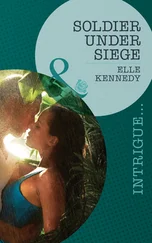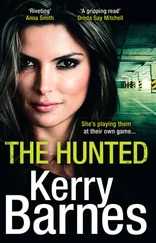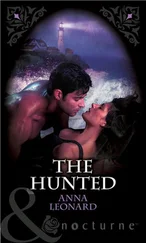“Story is slugged at seventy inches. That’s about twenty-five hundred words.”
“Are you trying to inspire me to greatness,” Sully said, sitting on the edge of a desk, folding his arms, the newsroom crowd filtering away now, “or compel me to quit?”
“I am all about inspiration, fear, motivation, blackmail, gunplay,” R.J. said, fiddling with his bow tie. Hand knotted. You could tell. Perfectly done. Probably had them tailor-made. “So how close are you?”
“To quitting?”
“Filing. You can quit tomorrow.”
“Ten or twelve of the approximately twenty-five feeds I was supposed to have had in hand an hour ago are actually in. Half of them ain’t worth shit and the other half are shit. I know feeds for somebody else’s story aren’t why anyone comes to work here, but Christ, man, a professional standard, I thought that sort-”
“So you don’t have anything but your dick in your hand.”
“Who said I’d gotten that far?”
Sully pushed himself off the desk, wandered into the hallway, threw his pen down the long, empty space in front of him, then picked it up and went down the steps and out of the building, the humidity assaulting him as soon as he pushed the glass doors open, coming out on the sidewalk.
To do, to do… what he wanted, what would fit the mental bill, was to be out on the boat, he thought, his crooked gait slowing, hands in his pockets, the din in his ears slowly being replaced by traffic, a jet overhead, the guy in the parking garage across the street, yelling for somebody pulling out to come back, come back.
The boat. Out on the Potomac in the gloaming, idling really, on that notch of the river just above the Key Bridge. The bluffs, densely green and overgrown this time of year, rose dramatically on both sides, but most prominently on the west, on the Virginia shore. The George Washington Parkway rose from river level beneath the Key Bridge to, what, a couple of hundred feet in less than a mile, the car lights winking in the oncoming darkness, flitting from behind the trees, emerging into an open stretch. Farther along, after the road turned inland, there were the mansions set on the bluffs, their patio lights barely visible this time of year, lost among the trees and the tangled overgrowth and shrubs.
That was the image that rose in his mind. Cut the engine on that notch of the river, just down from the rocks called the Three Sisters, letting it drift, bourbon on the rocks rattling in the glass, one hand on the wheel, not really thinking, night falling…
As it was, he was stuck in the mosquito-breeding swamp called downtown, simmering at a low boil between the Potomac and the Anacostia. Looking up, taking in the snatches of sky between the buildings, it was all a hazy brown, not cloud-covered and not blue sky either, just heat and smog and asphalt and buildings of brick and concrete and glass, people walking around like clubbed fish, dazed but not quite dead. Washington in August. An Edward Hopper painting in three-quarter time.
Deadline , he thought, looking at his watch. It’s what writers had instead of religion. He was three minutes late for a meeting in Eddie Winters’s office.
***
“So what the FBI director wants,” Eddie was saying, before he even sat down, “in addition to the wiretaps on Sully’s line and our switchboard, is for Sully to cooperate ”-he stressed the word, looking hard at Sully-“with their behavioral sciences unit. Go over any more calls the man makes. Assess tone, verbal tics, anything about his mother’s killing, or alleged killing, that might help them out.”
“Publication?” R.J. said, coughing, clearing his throat. “What’s their position on our publishing the call Waters made to Sully this morning?”
“To squelch. To hold off and not use it. They’re not thrilled, to master the understatement, about our using the 911 call that Sully overheard yesterday, his name, so on. The argument is that we’re giving this guy a platform, his fifteen minutes.”
Sully had plopped into the last available chair, which was right across from Eddie’s desk and next to Melissa Baird, the Metro editor. Paul Laine, the National editor, bleary-eyed, sat next to her. Lewis leaned against the floor-to-ceiling window, as did R.J.
Melissa audibly rolled her eyes. Sully had not known that was possible. “Calls to 911 are public record, for God’s sake,” she said.
“Eventually,” Eddie said. “Not necessarily during an active shooter situation.”
“So that’s what they’re calling this, even today?”
Eddie patted the air with his right hand. “I’m just conveying their thoughts.”
Lewis pushed up off the glass but Eddie cut him off before he could say anything.
“I don’t think it’s a legal issue, Lew. Or that’s not the first issue. I think, before we get to that, we’ve got public safety, public service. We alone have information that may or may not be valuable to law enforcement in capturing a mass killer who is, if I may, making a mockery of national security. I don’t see us just telling the FBI to stuff it. We cooperated with them this morning by alerting them to the call to Sully. Sully then relayed that information to them. We haven’t published it on the Web yet. We’ve given them a head start, if nothing else. The question is if we continue to hold off until Waters is caught.”
“I’m not saying we shouldn’t take them into account,” Sully said, “but they don’t know any more about this guy than we do-or haven’t told us if they do. Like you say, we’ve played ball, done our civic duty, given them a head start. But who’s to say publishing the call wouldn’t help catch him? I mean, the Zodiac Killer? The San Francisco paper got letters from him and ran them.”
“Zodiac never got caught,” Melissa said. “I don’t know that’s the example we want here.”
“‘Hello from the gutters of NYC,’” R.J. said, eyes looking up and to the right, working to remember, “‘which are filled with dog manure, vomit, stale wine, urine, and blood. Hello from the cracks in the sidewalks of NYC and from the ants that dwell in these cracks and feed on the dried blood of the dead that has settled into the cracks.’”
“Son of Sam,” Paul said. “a.k.a. David Berkowitz. The letter he sent to Jimmy Breslin. Hell of a column.”
“And published while Berkowitz was on the lam,” R.J. said. “It helped convict him.”
“Ted Kaczynski, Eddie,” Paul continued. “The Unibomber. The manifesto. Published by Brand X, the Post . With the urging of Freeh, who was then running the FBI, and Reno, over at Justice. Kaczynski’s brother recognized the writing when he saw it in the paper, boom, arrest. Puts us on precedent, particularly with Freeh and Reno backing it.”
Eddie leaned back in his chair. He had taken the time to put a suit on before coming in after R.J. had reached him at home with the news of Waters’s call, but there was still no tie. His gray hair was unruly, and he had not shaved. His shirtsleeves were neatly rolled. He hadn’t taken the time for cuff links.
“Do we know exactly how he tracked you down?” Looking at Sully.
“My cell,” he said, “is on my office answering machine. ‘And if it’s urgent, you can call me on,’ right there at the end. Available to any psychopath who has the nerve to call our switchboard and ask for me.”
Eddie nodded. “But nothing, you think, nothing he said, what, followed you home, called you from across the street?”
“No.”
“Okay,” he said, “here’s the deal. I’m going to tell the FBI we’re going ahead, with reasonable prudence and concern. Lead the story with the call, but completely straight. Understated. Sully, quote him before the jump. Twice after. Nothing sensational. The rest of the piece, that’s the manhunt, you’ve got everybody filing to you on that. We’ll reconvene to look it over. For now. If this drags out over the next several days, and he calls you again, we’ll decide case by case how to handle it.”
Читать дальше
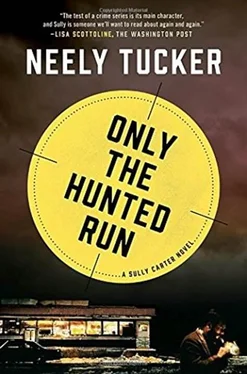

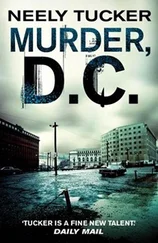




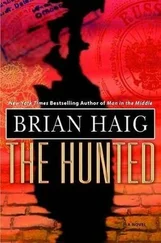
![Джон Макдональд - The Hunted [Short Story]](/books/433679/dzhon-makdonald-the-hunted-short-story-thumb.webp)
